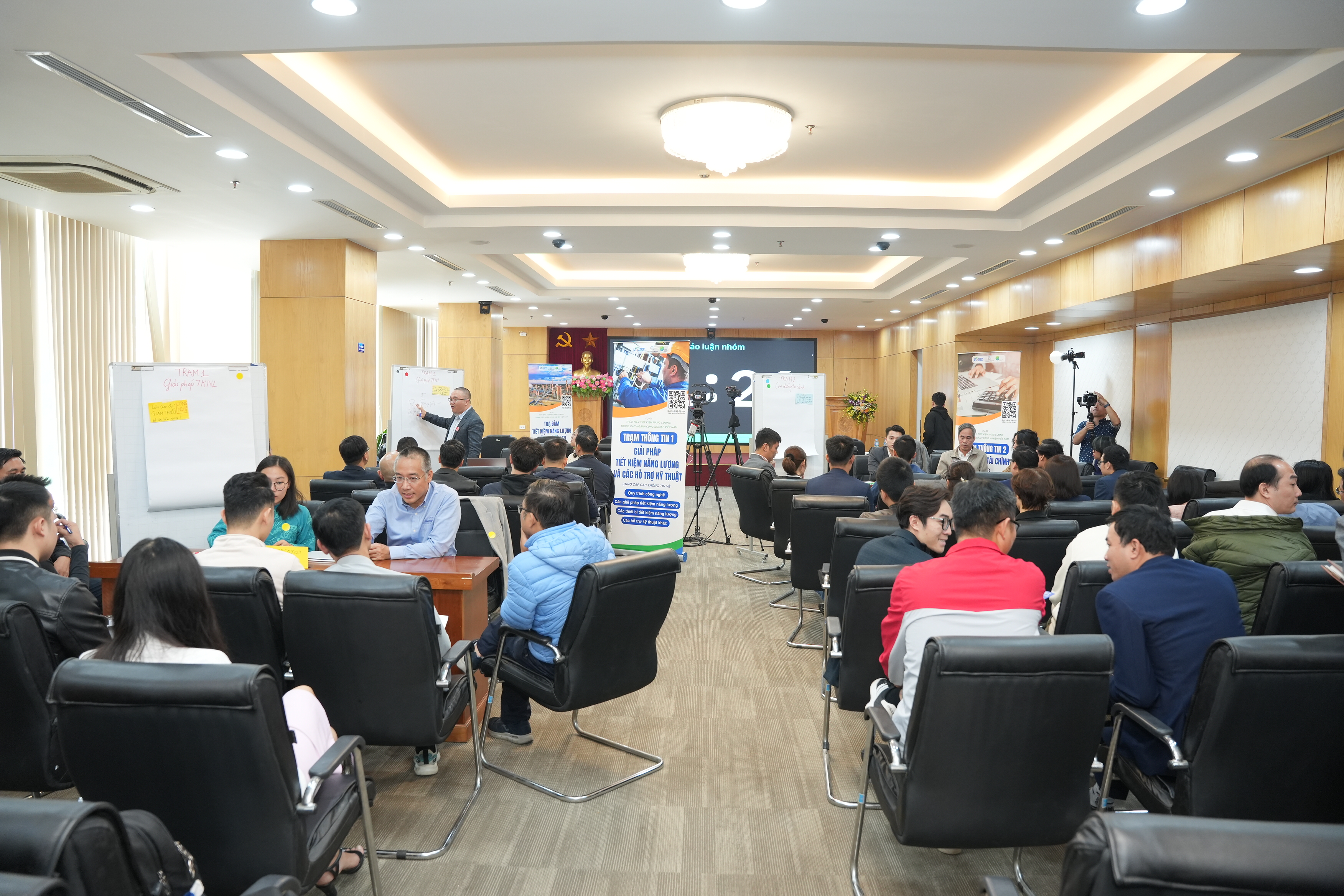
The VSUEE project is a testament to Vietnam's strong commitment to optimizing energy use and reducing greenhouse gas emissions. Ms. Nguyen Thi Lam Giang also emphasized that, through financial mechanisms such as the Risk Sharing Facility (RSF) and close collaboration between enterprises and financial institutions, Vietnam can achieve its energy efficiency goals while promoting sustainable development in the industrial sector.
At the workshop, the Project Management Office provided a detailed introduction to the VSUEE Project's activities and objectives, including technical and financial support for industrial enterprises and financial institutions to promote energy efficiency projects. Program Implementing Entity (PIE) representative from Saigon-Hanoi Commercial Joint Stock Bank (SHB) introduced the Risk Sharing Facility (RSF), the guarantee process, and how enterprises can participate in the fund to receive financial support for energy efficiency projects. He also highlighted the benefits that Participating Financial Institutions (PFIs) can gain from joining the Project.
The RSF was established to mitigate the credit risks encountered by financial institutions when financing energy efficiency projects through the issuance of RSF credit guarantees. Specifically, by joining the project, PFIs can secure RSF guarantees covering up to 50% of loans issued for energy efficiency investments. Additionally, banks involved in the project can receive specialized training on energy efficiency project appraisal, access to green technology trends, and enhanced capacity to implement international projects.
Mr. Do Tuan Linh, a representative of SHB Bank, presented the Risk Sharing Facility (RSF).
In addition, Mr. Duong Chi Cong, an energy expert from Vietnam Technology Solutions JSC (VETS), shared insights on technological innovations and advanced energy efficiency solutions in the industrial sector. His presentation focused on energy-saving and efficiency strategies, including general approaches to energy efficiency in industry; and specific solutions for sectors such as cement, textiles, plastics, paper, steel, beverages, and seafood processing. These solutions not only help reduce production costs but also promote sustainable development when the industrial sector faces environmental and energy challenges.
Mr. Duong Chi Cong, representing Vietnam Technology Solutions JSC (VETS), presented technologies and energy efficiency solutions in the industrial sector.
As part of the workshop, two information sessions were held to create a platform for enterprises and financial institutions to engage in direct discussions, addressing and clarifying key issues related to both technology and finance in the execution of energy efficiency projects.
Delegates participated in discussions at Information Sessions 1 and 2.
Information Session 1, titled "Energy Efficiency Solutions and Technical Support," focused on energy-saving solutions and technical assistance, with the participation of Energy Service Companies (ESCOs) and Energy Efficiency Service Providers (EESPs). The discussions covered topics such as technological processes, energy-saving solutions, energy-efficient equipment, and technical support services to conduct energy audits, feasibility studies, and environmental-social impact assessments.
Delegates actively engaged in discussions at the information sessions.
Information Session 2, titled "The Financial Pathway", outlined various financial products designed to support energy efficiency projects, including the RSF, financial processes, loan offerings, and guarantee mechanisms from financial institutions. Enterprises had the opportunity to directly engage with financial institutions to better explore financial opportunities and how to participate in energy efficiency projects through financial support programs.
The workshop "Energy Efficiency – Invest Effectively" not only provided a platform for Vietnamese industrial enterprises to access advanced energy efficiency technology solutions but also facilitated connections between enterprises and financial institutions, promoting investment in energy efficiency projects. The Ministry of Industry and Trade and the World Bank expect this workshop can contribute to accelerating the adoption of energy efficiency solutions in Vietnam's industrial sector, moving towards a sustainable and energy-efficient industrial foundation in line with the National Energy Efficiency Program 2019–2030.
The Risk Sharing Facility (RSF) is a component of the VSUEE project with a scale of USD 75 million, funded by the Green Climate Fund through the World Bank. The fund was established to mitigate credit risks for financial institutions when financing energy efficiency projects through the issuance of RSF credit guarantees. Objective Guarantee Mechanism |

_trinh_bay_ve_quy_va_cach_thuc_trien_khai_phat_hanh_bao_lanh..JPG)

